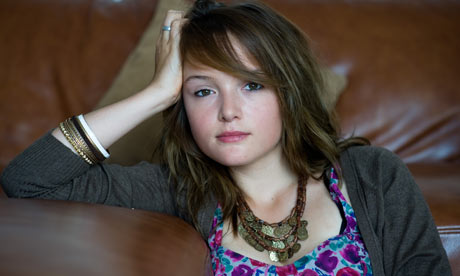
I am at war with myself, I thought, as I lay in bed in a semi-conscious state. My lips were blue from dehydration and my body ached. I needed water. I tried to call my mother but no sound escaped. Somehow, I made it downstairs; pushing my head under the tap, I ran cool water into my mouth, but even this didn't quench my thirst. I went to the bathroom and checked my reflection in the mirror. My cheeks were sunken, my eyes swollen. My limbs had no muscle; all that was left was bone and fat. I struggled upstairs to my bedroom; I knew it was time. I grabbed my insulin, screwed the needle on to the pen and pierced my skin, pushing the top down. It stung and I winced. I knew this meant that I had no willpower, but that I would live. I was 17 and at the lowest point of my life.
A doctor once told me I had one of the deadliest combinations he'd ever come across – type 1 diabetes and an eating disorder. And the charity Diabetes UK estimates that one in three young women who have diabetes are in the same position.
I was diagnosed with diabetes when I was 12. I remember my mother crying, but I felt numb. Afterwards, I did as I was told; pricked my finger, took my insulin and avoided sugar. But this obedience lasted only a few weeks. I began "forgetting" to take my insulin. I noticed that I lost weight and, though I didn't care about my size, I got a buzz when I realised I could feel my ribcage. For the next few years I had periods of good and bad control over my insulin and swung between starving myself and cutting out certain food groups to lose weight. Although I knew that if I "forgot" my insulin for a few days I would feel lighter, I didn't acknowledge this was why I was doing it.
When I was 14, I lost a stone and a half in the summer holidays. Suddenly I was popular; girls wanted to be my friends and boys began to notice me. This gave me the fuel I needed to carry on dieting. But I became so sick that I left school a few months later, and sank into a deep, and lonely, depression. When I was 16, I discovered from the internet that the longer I went without insulin, and the more sugar I consumed, the faster my body would build up ketones – poisonous toxins in the blood that cause severe dehydration and weight-loss – so I stopped taking my insulin. At first, I told myself it would just be for a day, to see if it worked. Within days I had lost 5lb. By the end of the summer I was at my target weight. I pushed further, went for that extra day. Making myself ill made me feel as though I was finally in control of my body, something I felt that I had lost when I was diagnosed with diabetes.
I would go to college and drag myself up the stairs, stopping for breath after every few steps. I had to take days off because I couldn't get out of bed: I pretended I had glandular fever. But I knew then that things had to change. I was getting A grades, but it couldn't last and I feared I would have to leave college. I tried to go back to my insulin regime, but when I put on weight I couldn't cope. So in August my mother and I contacted the Priory in London and I was officially diagnosed with a form of bulimia nervosa.
I stayed at the Priory for a month. When that didn't work I went to another unit in Chelmsford, Essex, for six months. I spent most of it trying to get out, to get home so I could carry on abusing my insulin. My family couldn't cope; my mother had to leave her job to look after me, my brother became easily upset and desperate for attention. I had lost my ability to think of others. Eventually, about four months in, I began to co-operate. I was discharged as a calm 18-year-old, in control and sure of where she was going. I got a job, applied to a local college course, began a relationship and tried to move on.
Five months after my discharge, and after just one more two-week stint of inpatient treatment, I know that I will never be cured of my eating disorder or my diabetes, but I also know that both can be managed. Recently I went to India and worked in an orphanage with children who had HIV. I knew that they might not live to be 18 and it made me realise how lucky I am. I plan to start college in Bristol and hope to go on to university. I have so many goals and ambitions and so much hope. I'm determined not to let this illness beat me •
Tayler Hackett
Do you have a story to tell about your life? Email it to my.story@theguardian.com. If possible, include a phone number.

